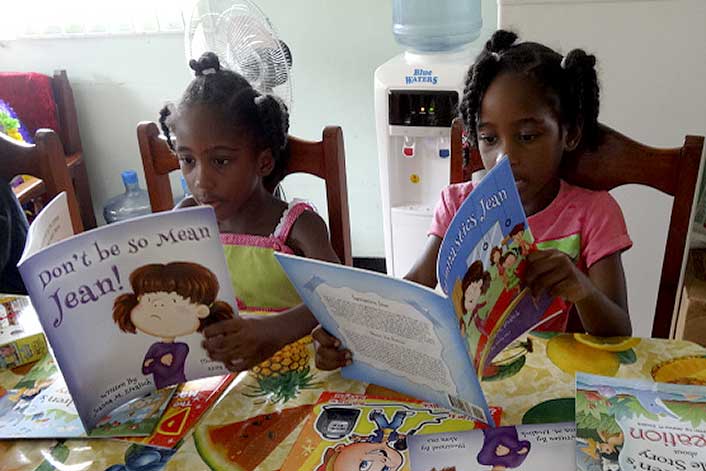Facts About Our Work in Trinidad
Food For The Poor (FFTP) has been in Trinidad for 35 years and began building homes there in 2005. FFTP works with in-country partners Living Water Community in Port of Spain, which has been serving in Trinidad since 1975 and the Foundation for the Enhancement and Enrichment of Life (FEEL) that was established in 1992 to assist communities in Trinidad and Tobago in the areas of poverty alleviation, disaster relief and recovery, education and medical support.
In 2021, FFTP shipped 97 containers of essential goods, and nonperishable food to Trinidad including medical and orthopedic supplies, hospital beds, school furniture, mattresses, and assorted canned foods and Guyana rice.
In March 2020, FFTP responded quickly when COVID-19, a respiratory disease caused by the coronavirus, became a pandemic. The charity shipped 19 tractor-trailer loads of food and personal hygiene items specifically for COVID-19 relief.
In 2020, FFTP shipped 125 tractor-trailer loads of aid to the Caribbean nation, which included the following items:
- Agricultural tools
- Clothes
- Computers
- School furniture
- Nonperishable food
- Household items
- Medical furniture
- Medical supplies
- Personal care items
- Wheelchairs
- Construction supplies
In 2020, FFTP donated eight computer sets. Each set can be used by six students at a time, proving access to 48 users. FFTP also donated a matching band set in 2020.
Since inception, FFTP has built 281 homes for impoverished families in Trinidad. These sturdy homes provide shelter, safety and brighter futures for families in need.
The island of Trinidad was a Spanish colony from the arrival of Christopher Columbus in 1498 to the capitulation of the Spanish Governor, Don José Maria Chacón, on the arrival of a British fleet of 18 warships on Feb. 18, 1797.During the same period, the island of Tobago changed hands among Spanish, British, French and Dutch. Trinidad and Tobago (remaining separate until 1889) ceded to Britain in 1802 under the Treaty of Amiens. The country Trinidad and Tobago obtained independence in 1962, becoming a republic in 1976. Unlike most of the English-speaking Caribbean, the country’s economy is primarily industrial and has a population of more than 1.2 million people. The language is English, and Protestantism is the largest religion. The currency is the Trinidad and Tobago dollar, and the GDP per capita is $23,700.
